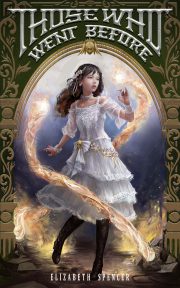Here are Eight Places That Accept Nonfiction Essays on SF/F Topics
by Margaret Kingsbury
Writing articles for websites can turn into a nice side income and can even become a main source of income if you’re consistent in generating new ideas and pitching them to editors. Many websites are dedicated to science fiction and fantasy nerdom, with editors constantly looking for new content to publish. This piece, for example, was a successful pitch to the SFWA Blog, which is currently open to nonfiction pitches and pays for accepted articles. Below, I list an additional eight websites—all paying—and information on how to pitch them. I’ve also included a brief outline to pitching, in case you haven’t pitched before.
Pitch Outline
Subject: Pitch — TITLE (Put TIMELY before your title if your pitch deals with something currently in the news.)
Dear EDITOR’S NAME (If you don’t know the editor, you can put Hi there, or Dear Editor),
Please consider this pitch for NAME OF WEBSITE.
TITLE (this title will probably change, but it’s good to have a direct title that succinctly summarizes your idea)
One to two paragraphs summarizing the pitch idea. Give your thesis, discuss why it’s relevant, describe what research you’ll be doing, give a couple of specific examples. Stay short, sweet, and to the point, but don’t undersell the pitch either.
A brief bio and relevant clips if you have them, no more than three. The bio should be one to two sentences and showcase your relevant experience. If possible, clips should be related to the topic you’re pitching, preferably to previously published work. If you haven’t published nonfiction online before, that’s fine; remember that your pitch is also providing an example of your writing style and skill. Plenty of editors are willing to work with new writers (I’ve listed some below).
Thank the editor again for their consideration, and say that you look forward to hearing back from them.
Closing salutation,
YOUR NAME
Pitching Tips
I often include two pitches in my email, and though some writers say to only include one, it’s worked really well for me (if pitch guidelines say not to send more than one pitch, defer to the guidelines). Editors prefer pitches and not completed articles. If you plan on pitching regularly, I recommend signing up for Sonia Weiser’s Opportunities of the Week newsletter. It costs $3 a month and includes 50+ calls for pitches every week, with editorial contact information. I’ve landed many article assignments by responding to pitch calls listed in her newsletter. You can also sign up for the free Freedom With Writing newsletter, which sends about a dozen calls for pitches a week. Also check out the Where to Pitch website, though many excellent nerdy websites are missing from their directory.
If you’re on Twitter, follow your favorite websites and editors. They’re likely to tweet when they’re looking for contributors, though you can always pitch a website even when they haven’t sent out a call. To find out where to send your pitch, try searching the website’s masthead and seeing if you can find editor contact information on Twitter. Also, search the website’s name + pitching in a general search and see what you can find.
Before you pitch an editor, familiarize yourself with the website. Have they already published a similar article to yours? If so, do you have a unique slant you can put on the topic? What’s the website’s tone? For instance, you wouldn’t pitch a fun listicle to a website that prefers researched-based essays.
If you haven’t heard back from an editor after one to two weeks, send a followup email. About half of my acceptances come from follow-up emails.
Eight SF/F Websites to Pitch*
StarTrek.com
StarTrek.com was the first place I landed a pitch. They have detailed guidelines for pitching on their website. Send pitches to StarTrekPitches@cbs.com.
SyFy Wire
SyFy Wire posts all sorts of SF/F content, from articles about TV shows and movies to comic book and video game reviews. Most of their content is recent—this isn’t the place to pitch your hot take on Legend. Pitch the associate editor Caitlin M. Busch at caitlin.busch@nbcuni.com.
Strange Horizons
In addition to publishing fantastic short stories and poems, Strange Horizons publishes nonfiction essays, from longer academic essays of 3,000–5,000 words to shorter columns of 1,000–2,000 words. They also publish interviews. Their guidelines are listed on their website, and pay starts at $40 and goes to $80. Send columns to columns@strangehorizons.com and articles to articles@strangehorizons.com.
Clarkesworld Magazine
Clarkesworld Magazine is another one of my favorite places to read new SFF short stories, but they’re also always on the lookout for nonfiction essays too. Their guidelines are listed on their website, and they pay ten cents a word up to 2,500 words. Send your pitches to nonfiction@clarkesworldmagazine.com.
Tor.com
I love Tor’s blog, and they do accept essays on older works. Tor has clear guidelines listed on their website. Send pitches to blogsubmissions@tor.com, or to editor Christina Orlando at christina.orlando@tor.com.
The Mary Sue
The Mary Sue is a feminist, inclusive, and geeky website. They have an online submissions form for pitches, though in the past, I’ve pitched Dan Van Winkle at dan@themarysue.com.
Nerdist
Nerdist is also a hot spot for nerdy news. Submit your pitches to their online form.
Lady Science
Lady Science looks at the history and pop culture of science from a feminist perspective. Their guidelines are listed on their website, and you can send essay, commentary, idea, and review pitches to ladyscienceinfo@gmail.com, while feature pitches should be sent to Sarah Muncy at sarah@ladyscience.com.
*Editors’ Note: The contact information listed above was accurate as of August 24, 2020.
Margaret Kingsbury (she/her) is a freelance writer and editor whose essays regularly appear in BuzzFeed Books, StarTrek.com, Book Riot, Think Inclusive, and more. She’s the co-creator and co-writer of Baby Librarians, a children’s book review website, and she’s a disability sensitivity reader and editor for Salt & Sage Books. Her short stories and poems have been published in Pulp Literature, Devilfish Review, Expanded Horizons, Nonbinary Review, and are forthcoming in Abyss and Apex. She lives in Nashville, TN, surrounded by books and toddler toys. Follow her on Twitter @areaderlymom and on Instagram @babylibrarians.


